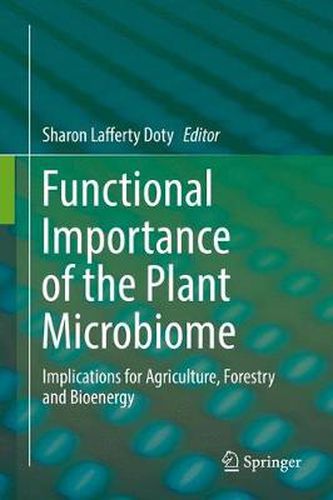Readings Newsletter
Become a Readings Member to make your shopping experience even easier.
Sign in or sign up for free!
You’re not far away from qualifying for FREE standard shipping within Australia
You’ve qualified for FREE standard shipping within Australia
The cart is loading…






This title is printed to order. This book may have been self-published. If so, we cannot guarantee the quality of the content. In the main most books will have gone through the editing process however some may not. We therefore suggest that you be aware of this before ordering this book. If in doubt check either the author or publisher’s details as we are unable to accept any returns unless they are faulty. Please contact us if you have any questions.
This book addresses all the major mechanisms by which endophytes are thought to impact plant growth and health. A unique aspect of this publication is that it is multidisciplinary, covering plant microbiology, plant physiology, fungal and bacterial endophytes, plant biochemistry, and genomics.
Just as research on the mammalian microbiome has demonstrated its importance for overall health of the host, the plant microbiota is essential for plant health in natural environments. Endophytes, the microorganisms living fully within plants, can provide a multitude of benefits to the host including N-fixation, P solubilization, increased photosynthetic efficiency and water use efficiency, stress tolerance, pathogen resistance, and overall increased growth and health. A variety of culturable endophytes have been isolated and shown to be mutualistic symbionts with a broad range of plant species. These studies point to the functional importance of the microbiota of plants and suggest the potential for tailoring plant microbiota for improved vigor and yields with reduced inputs. This review covers the major benefits of microbial endophytes to plants and discusses the implications of using symbiosis as an alternative to chemical inputs for agriculture, forestry, and bioenergy.
$9.00 standard shipping within Australia
FREE standard shipping within Australia for orders over $100.00
Express & International shipping calculated at checkout
This title is printed to order. This book may have been self-published. If so, we cannot guarantee the quality of the content. In the main most books will have gone through the editing process however some may not. We therefore suggest that you be aware of this before ordering this book. If in doubt check either the author or publisher’s details as we are unable to accept any returns unless they are faulty. Please contact us if you have any questions.
This book addresses all the major mechanisms by which endophytes are thought to impact plant growth and health. A unique aspect of this publication is that it is multidisciplinary, covering plant microbiology, plant physiology, fungal and bacterial endophytes, plant biochemistry, and genomics.
Just as research on the mammalian microbiome has demonstrated its importance for overall health of the host, the plant microbiota is essential for plant health in natural environments. Endophytes, the microorganisms living fully within plants, can provide a multitude of benefits to the host including N-fixation, P solubilization, increased photosynthetic efficiency and water use efficiency, stress tolerance, pathogen resistance, and overall increased growth and health. A variety of culturable endophytes have been isolated and shown to be mutualistic symbionts with a broad range of plant species. These studies point to the functional importance of the microbiota of plants and suggest the potential for tailoring plant microbiota for improved vigor and yields with reduced inputs. This review covers the major benefits of microbial endophytes to plants and discusses the implications of using symbiosis as an alternative to chemical inputs for agriculture, forestry, and bioenergy.